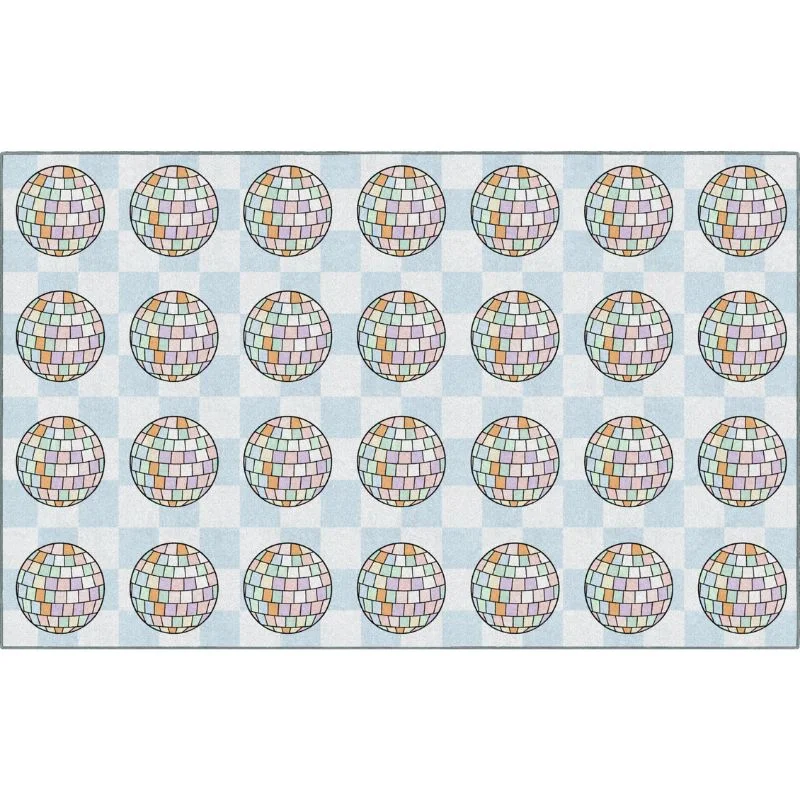Add some sparkle and fun to your classroom with our Disco Balls on Checkerboard Classroom Rug. This vibrant rug will add a touch of excitement to any learning space. The checkerboard pattern adds a playful touch while the disco balls bring in some extra energy. Perfect for any classroom setting.
Please Measure Your Space and Choose the Best Size
- 5' x 7'6 (20 happy faces) 😄
- 7'6 x 12' (28 happy faces) 😁
Light colors will show dirt from everyday foot traffic 👟
Ideal for invigorating classroom activities, this rug serves as the perfect gathering spot for story time, games, or group discussions. The playful checkerboard design paired with the glittering disco balls not only adds a whimsical flair but also helps in organizing space and keeping students engaged. It's an excellent way to stimulate visual perception and enhance the aesthetic of your classroom.
- Made in the USA
- Treated with Scotchgard protector for superior soil resistance. 🌧️
- 24 oz Nylon w/Urethane Backing System 🧼
- Class I Flammability Rating and Indoor Air Quality passed. 🔥
- Bound and double stitched with nylon edge yarn for maximum strength and durability. 🪡🧵Flagship stain and CRI labels 🏆
SensoryEdge is an Authorized Seller of SchoolGirl Style Designs
Transform your classroom into a dazzling learning hub with the "Disco Balls on Checkerboard" seating rug! It’s a fantastic choice for any teacher looking to add some sparkle and structure to their educational space. Order this rug today and watch your students light up with excitement and inspiration every day!

